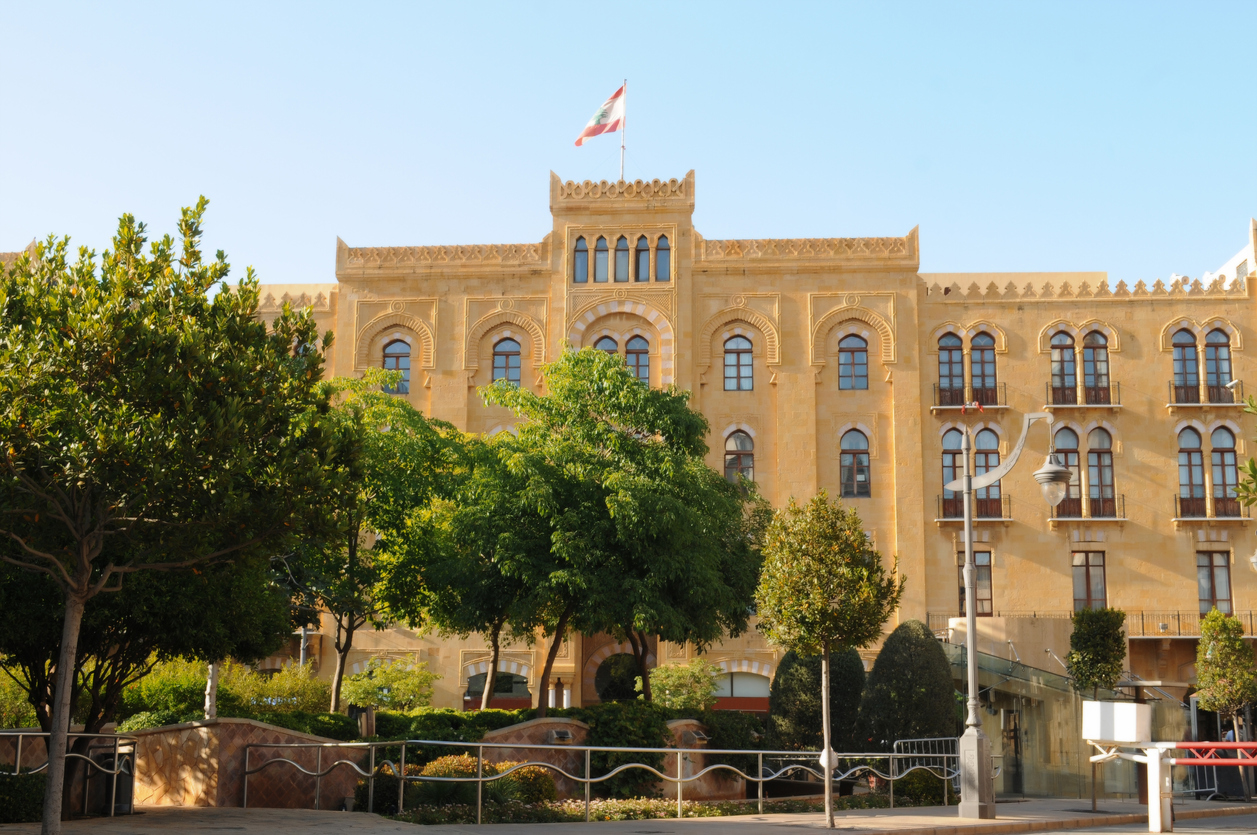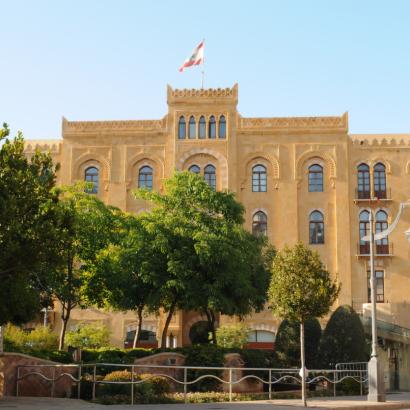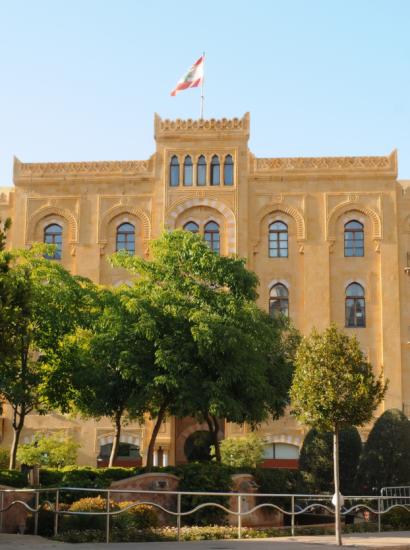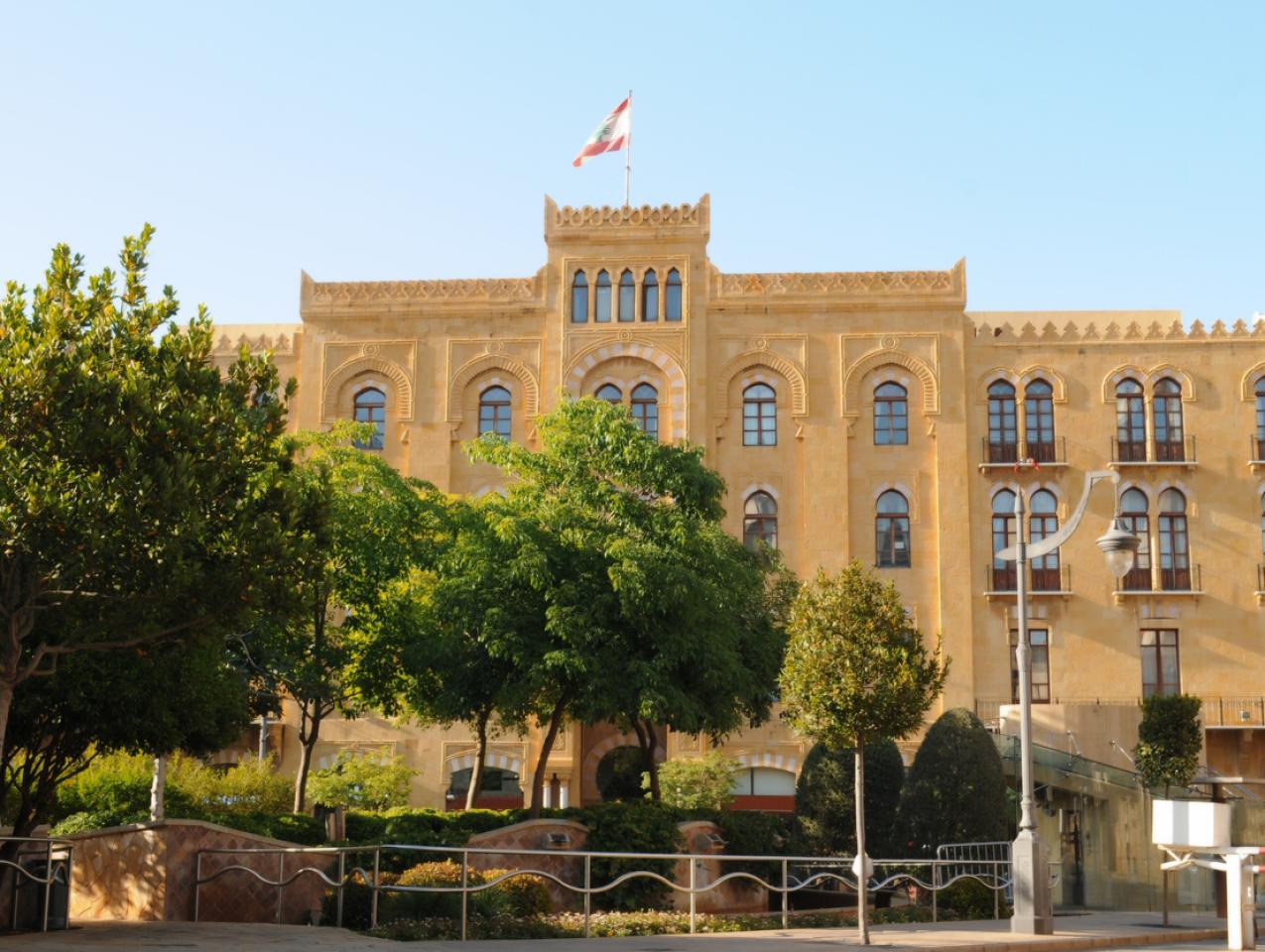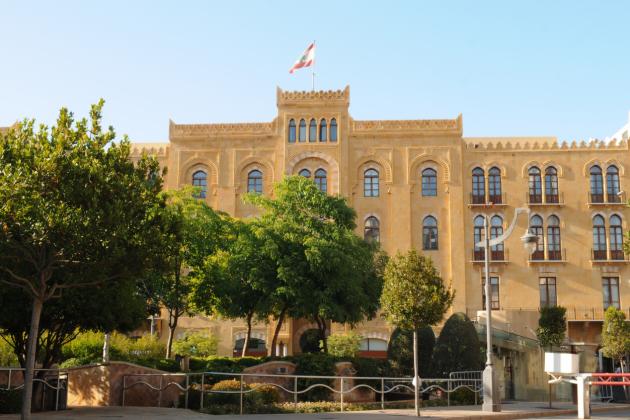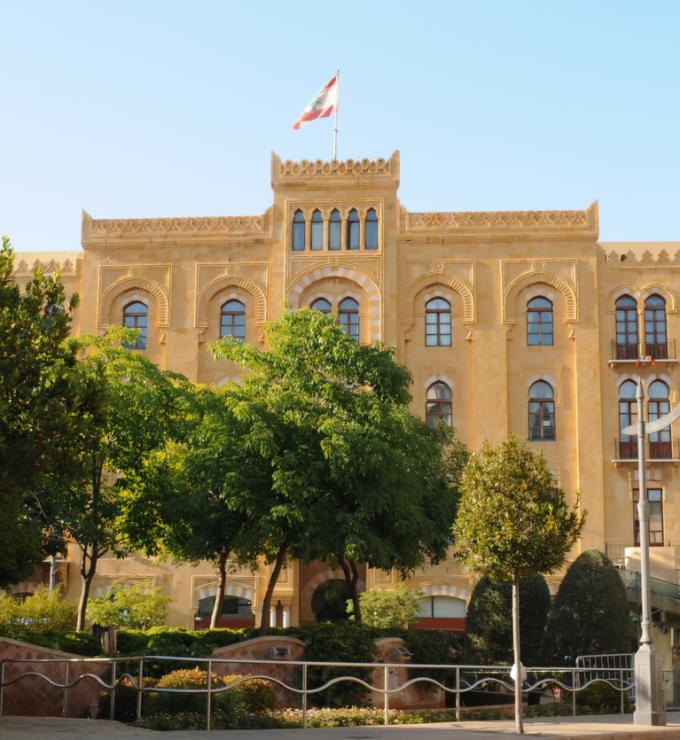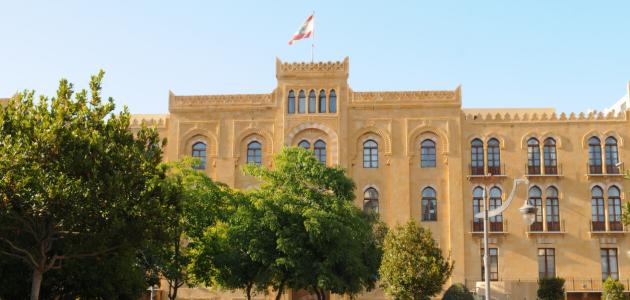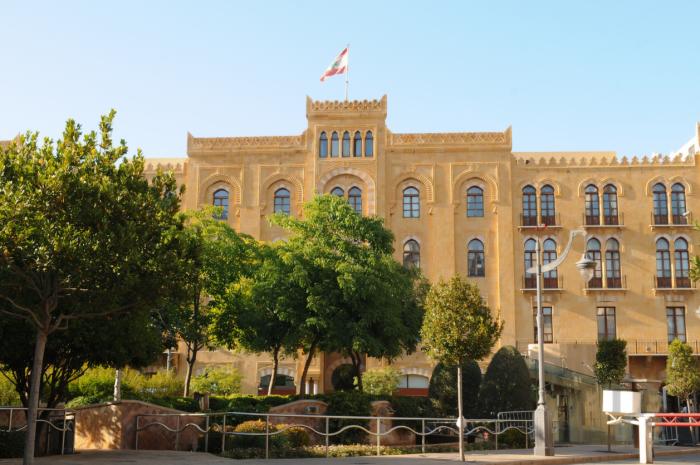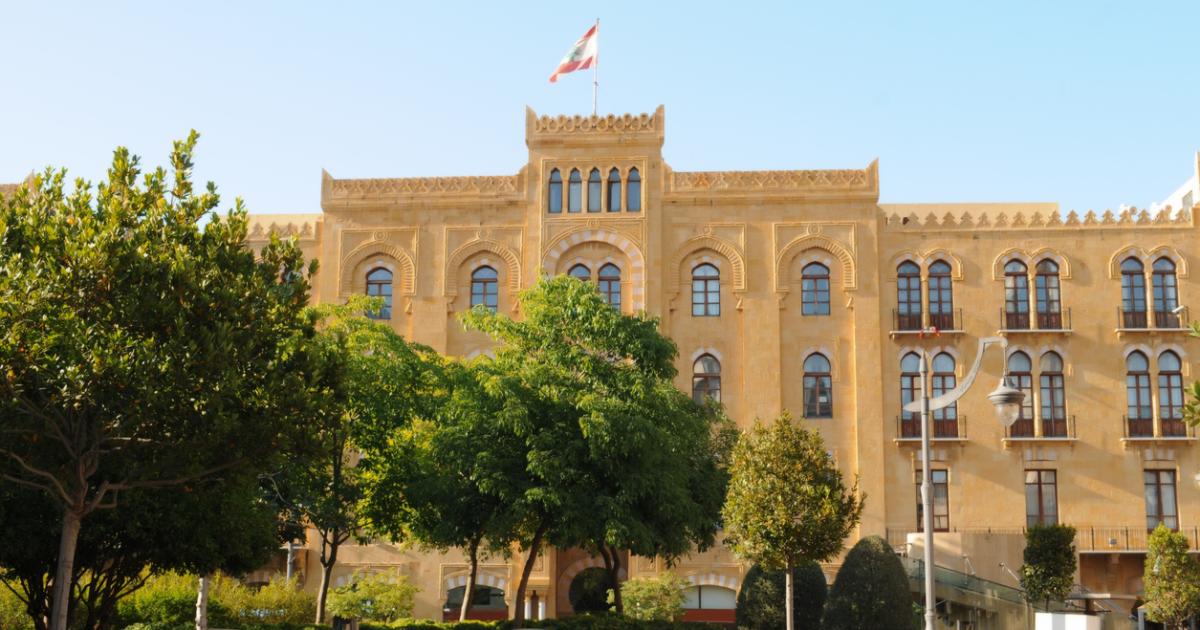Mount Lebanon has existed since time immemorial mention being made of it 71 times in the Bible. For sixteen centuries, the Lebanese Christian Maronites have been dreaming and fighting for ‘a "homeland." In 1861, the Ottomans granted Mount Lebanon its autonomy, what we could call a sovereign state today, due to pressure from Czarist Russia and its allies. Druze and Christian populations enjoyed fifty years of stability and prosperity, the first accomplishment of a federal system. All of that ended in 1920 when, against the advice of the French and the British, the Maronites defined the frontiers of a "Greater Lebanon This would set the stage for Lebanon’s future demographic conflict.
The Sunni community rejected Greater Lebanon on religious, legal and emotional grounds, objecting to a state which did not follow Sharia law and was to be ruled by Christians. As Muslims and Arabs, they aspired to be part of Syria. For two decades after 1920, the two communities were in conflict. Eventually Riad Solh, with his Arab credentials and ties to Syria concluded an agreement with Bechara Khoury, the Christian leader who gained legitimacy after a public statement advocating a pro-Arab policy. When the Maronite patriarch called for independence, the icy Maronite-Sunni relationship began to thaw. Greater Lebanon was consolidated in 1943 as an independent and democratic state, with an Arab identity.
Nonetheless the Muslims opposed the Lebanese national project and never missed an opportunity to call for change. Starting in 1958, Sunni political forces denounced the 1943 agreement and responded positively to Egyptian President Gamal Abdel Nasser's call for a unified Arab state. A civil war erupted and ended with the arrival of an American fleet. After the 1967 war, the Palestinian resistance created 'Fatah Land" in southern Lebanon in order to launch military actions against Israel. A civil war began in 1975 and did not end until 1989 with the Taif Agreement, which diminished the prerogatives of Christians in favor of Muslims and therefore had to depend on the force of an external power, which was Syria until 2005.
As for the Shiite community, in the wake of the Israeli invasion of the south, Hezbollah rejected any laying down of arms, as stipulated by the Taif Accords, and benefitted from Iranian support and Tehran's ambition to export the Islamic revolution. With the withdrawal of the Israeli Army, Hezbollah declared victory and grew in influence. It began to consider itself a transnational Shiite Islamic entity with policies dictated by the Wali al-Faqih (in other words, the leader of Iran), rather than a distinctly Lebanese organization concerned with Lebanese national interests.
The wars and conflicts that have torn the Middle East apart have also fueled the geopolitical rivalry between Saudi Arabia and Iran, bringing the issue of sectarianism to the forefront. For each of the four major communities within Lebanon - Sunni, Shia, Christian and Druze - with their sense of belonging and influence, have drawn Lebanon into interregional and international conflicts.
Religion plays a crucial role in Lebanon’s politics. The constitution guarantees representation in government on the basis of the four religious sects; the ruling political parties are defined more by religious affiliations than by economic or social policy, and each one of these four groups has the power of veto. With its considerable arms and political influence, Hezbollah most frequently uses its veto power, leading Lebanon to total political, economic and financial gridlock, in addition to the negative impact of its far-flung war-machine in Syria, Iraq, Yemen and other countries.
The Lebanese political system has allowed corruption to become an accepted form of political behavior relatively quickly. Politicians seek control over ministries to direct resources and funding to their allies. State authority has been virtually eroded, and the country has plunged into what the World Bank describes as the world’s worst economic crisis in more than a century.
Despite all this, Lebanon can never be a failed state, due to its resilient character, its rich array of talents and its many professionals excelling in various fields. It is also supported by a multigenerational diaspora of more than twelve million overseas Lebanese providing financing of over seven billion USD. Stability gave Lebanon wings to drive the economy at a high pace, as history has shown. Whenever the country enjoys stability, Lebanon undergoes a period of prosperity and economic recovery, as a unique touristic destination for vacationers from all around the world. In fact, Lebanon was the seat of the first hotels and exclusive gambling casinos ever established in the Middle East, which is why it became famous as a leading destination for education, health care, fashion centers and tourism, the "Switzerland of the East," while Beirut was known as the "Paris of the Middle East." Such are the potentials of Lebanon, without even mentioning its new oil and gas resources.
Despite these resources, the Lebanon model of "coexistence" and the Taif Accord have failed miserably. Lebanon has been fighting a losing battle to establish itself as an oasis of “coexistence” that unites diverse social communities, while also upholding personal liberties and democratic values in a region marked by tyranny and suppression. This has only widened the cultural and ideological gaps. Thirty-three years after the Taif Accord which supposedly ended the fifteen years of Civil War, the country’s continuing predicaments indicate that the guns may have been silenced due to international pressure, but the war never really ended.
Christians, who previously led the wars to protect their homeland, call today for security and stability. Meanwhile, the Sunni community is going through a period of frustration. It is Hezbollah, that holds the key to chaos or stability, war or peace. Thus, the potential for Civil War persists.
It is therefore time to start thinking outside the box. The more acute the crisis, the more intense the need for constitutional solutions, that is, a different constitutional model. Moving forward clearly requires a more diffuse political system – running the gamut from forms of moderate decentralization all the way to complete federalism, in order to bring peace to the country, avoid another bloody costly civil war, and protect the minorities who remain the last bastion of western orientation in the Arab Middle East.
Failure of Lebanon’s “Coexistence” Should Give Rise to a Federal System Model.
Surveying the history of nations, and similar crises of ethnicity, religion, tribalism, language and identity, one finds various solutions that all depend on federalist principles. Despite the differences, there is a common denominator in the diverse models of governance offered by federal states such as the United Arab Republic, Switzerland, Germany or the United States.
In the scramble for solutions, a group of Lebanese intellectuals representing different communal groups, is examining the creation of an ethno-geographic federal system of four statelets with a high degree of economic, political, economic, and cultural security and autonomy, based on a road map embracing the distribution of resources to each "canton" with resources for economic prosperity and autonomous survival. Indeed, the federal dilemma periodically re-emerges in the Lebanese debate despite the lack of transversal consensus or supportive political actors. Advocates of such efforts believe it is necessary to face the reality of Lebanon’s history of repeated conflicts and imagine something fundamentally new.[1]
The majority of Lebanese Christians believe that federalism offers a solution that could preserve and protect the last bastion of Christianity in the Middle East. Yet the majority of the Muslims reject federalism for demographic reasons and disseminate confusion concerning the partitions, as well as the perception that Christians created wealth in Lebanon, while Muslims succeeded in the Gulf, due to the fact that during the last decades, it was Christians who controlled the majority of the productive sectors of the Lebanese economy: tourism, industry, banking, education, health care, commerce, and more.
However, many in the Muslim community do not realize that a new economy is emerging, a shift from the rentier economy of the last thirty years -- one of the major contributors to Lebanon’s economic downturn-- to a productive economy based mainly on industry, agriculture, tourism and other components, adding profitable advantages to the prospective Muslim cantons. In fact, Sunni and Shiites cantons would have within their territories:
- the main agricultural regions, industrial cities and two airports: Bekaa Valley, North Akkar and the South Lebanon plains.
- the major coastal cities and their ports: Tripoli, Sidon, Tyr, and their share of Beirut, giving them the opportunity to access trade and shipping services.
- the new oil and gas resources discovered on the Mediterranean coast and all related investments.
Lebanon constitutionally is already a de-facto federal system, encompassing defined regions with their own identities, but nonetheless controlled by the strongly centralized government. All its components are informal, waiting to be formalized. In fact, the complexities in Lebanon have produced demographic and economic niches in informal cantons, which, as a consequence of war, are concentrated in specific geographical areas.
Certain territorial units already have autonomy over identity issues, culture, tradition, customs, education system, religious and personal-status laws which do not apply to other regions. Specifically, Hezbollah is implementing its own system of education, health and social security, and finances, the ‘Qard-el-Hassan,’ parallel to the official banking system and the central bank. Thus, federalism is emerging despite the framework of the central government.
The sense of belonging of each of the four communal identities which form Lebanese society also has an international dimensional. In other words, a domestic Lebanese consensus remains impossible without the consent of all the foreign allies of the four Lebanese communities. Throughout the modern history of Lebanon, each and every armed crisis has been resolved through the strength of foreign intervention, whether armed or unarmed, and whether the powers are regional, international or both. Some of the major players in the politics of the Middle East, first and foremost the United States, France and their allies can help forge a federalist future for Lebanon, which will otherwise spiral again into armed conflict. Even, the Maronite Patriarch recently called for an international conference to save Lebanon and declare ‘neutrality’ in foreign affairs, which is the first step toward a federalist solution domestically.
Pierre Achkar is the Mayor of Brummana District and President of the Lebanese Tourism National Board
[1]See: The New Constitution of United Lebanon and the Principles of the Lebanese Federal Mode: https://drive.google.com/drive/folders/17_qkwuWUsP3Rcpzz7RW4Men3mCaRFYq9







